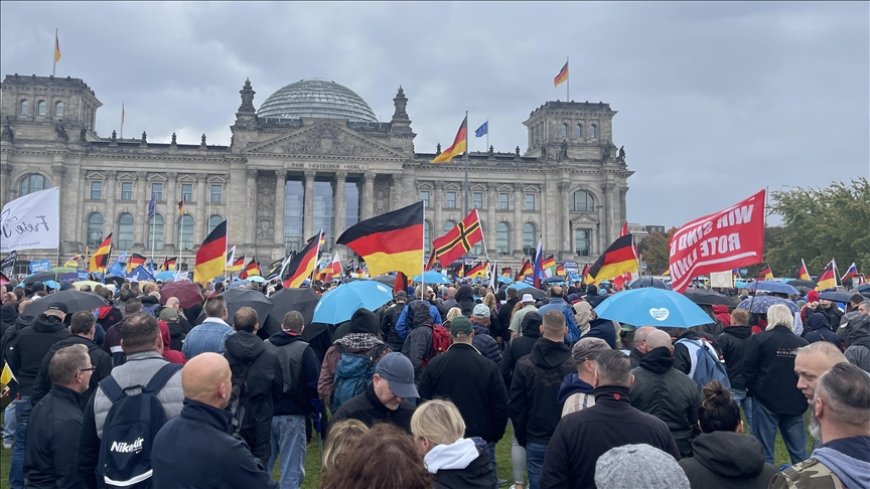Eclipsed by Division: Germany’s Election and the Fall of European Unity
With fewer than two weeks remaining until Germany’s parliamentary elections, the nation teeters on the brink of a crisis that could reshape not only its destiny but also the future of Europe and the global political order. As the largest economy in the European Union and a longstanding pillar of continental stability, Germany’s forthcoming electoral decision holds ramifications that extend far beyond its borders, influencing policies and alliances on an international scale.

By: A. Mahdavi
With fewer than two weeks remaining until Germany’s parliamentary elections, the nation teeters on the brink of a crisis that could reshape not only its destiny but also the future of Europe and the global political order. As the largest economy in the European Union and a longstanding pillar of continental stability, Germany’s forthcoming electoral decision holds ramifications that extend far beyond its borders, influencing policies and alliances on an international scale.
At the heart of this contest lies a confrontation between two diametrically opposed visions for Germany’s future. On one side, the Christian Democratic Union—under the prospective leadership of Friedrich Mertz, a likely chancellor candidate—champions a course of preserving time-honoured German values, rigorous fiscal discipline, and an unwavering commitment to deeper European integration. Mertz’s platform is built upon the pillars of economic stability and innovation-driven growth, aiming to sustain a robust, market-based economy that not only bolsters sustainable development and accelerates the transition to renewable energy but also reinforces social cohesion. In this paradigm, Germany’s role as a global economic powerhouse and a linchpin of European solidarity is meticulously maintained and enhanced.
In stark contrast, the far-right Alternative for Germany (AfD) presents an ominous alternative rooted in nationalism, Euroscepticism, and draconian immigration policies. Exploiting widespread discontent with globalization, rapid cultural transformations, and economic uncertainties, the AfD seeks to diminish Germany’s pivotal role in the EU’s financial and political integration. Its platform prioritizes national sovereignty over collective European interests, advocating for isolationist and protectionist policies that could dismantle the intricate fabric of European cooperation. A victory for the AfD would not only redirect Germany towards inward-looking policies but also embolden populist movements across the continent, potentially triggering a cascade of polarization and undermining public trust in democratic institutions.
The stakes of these elections are immense. German leadership has historically been instrumental in orchestrating unified responses to crises—be they economic downturns or geopolitical conflicts. A government steered by the Christian Democrats is poised to continue this legacy of robust international cooperation, thereby preserving the delicate balance of the EU and reinforcing its capacity to confront shared challenges such as climate change, security threats, and economic volatility. Conversely, an AfD-led government could precipitate a radical overhaul of Germany’s fiscal policy, compelling other EU member states to recalibrate their economic strategies in an already volatile environment. Such upheaval would likely dampen investments, stifle growth, and erode the collective resilience that has long been the cornerstone of European stability.
In essence, the upcoming German elections transcend mere domestic politics—they represent a critical referendum on the future trajectory of European governance and the global order. The decision that German voters render in the coming days will not only chart the nation’s course but will also have profound, far-reaching implications for the unity, prosperity, and security of the entire continent. As Germany stands at this perilous crossroads, the spectre of isolationism and internal division looms large, casting a long, foreboding shadow over the future of Europe.













































